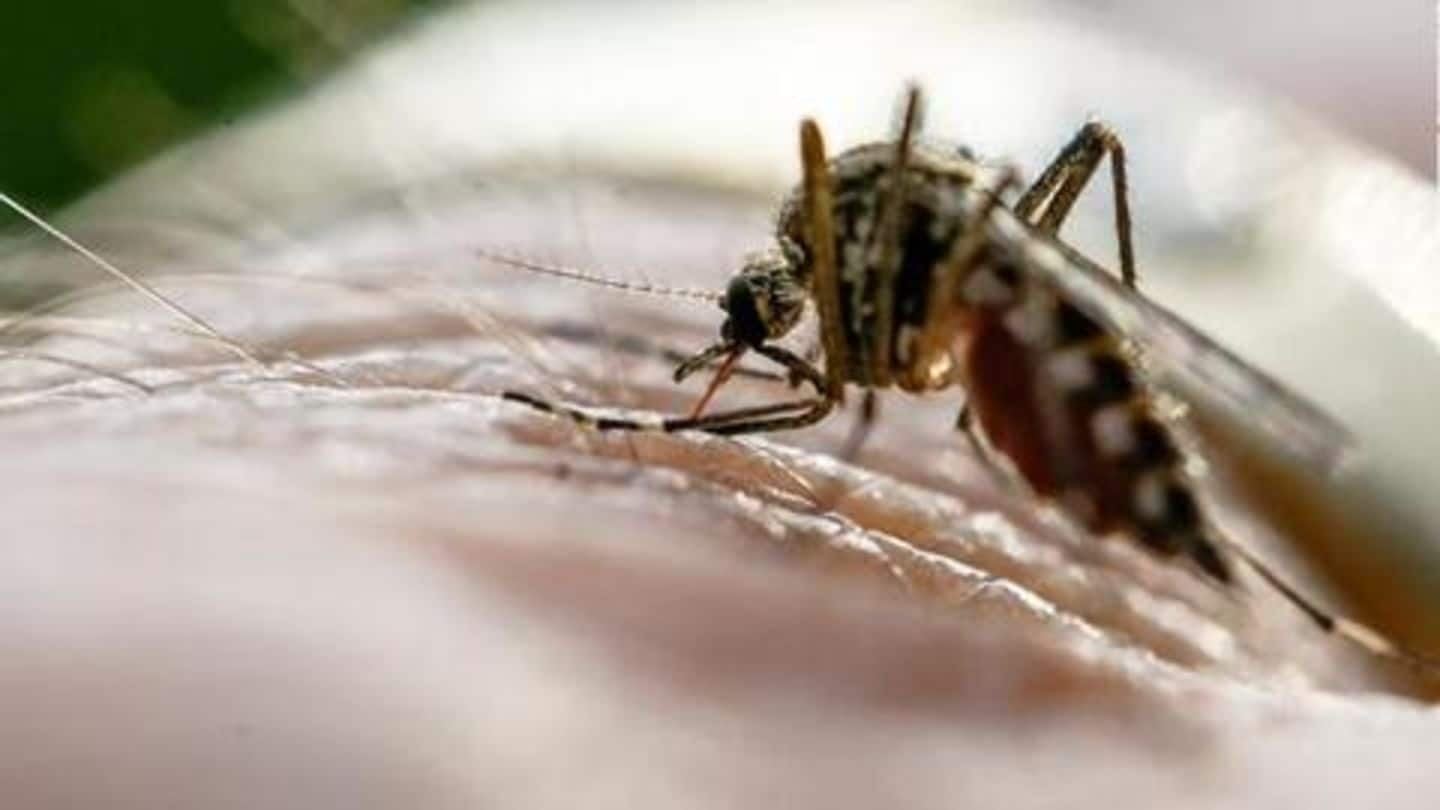
India, 15 African countries see 80% of world's malaria-cases: WHO
What's the story
India and 15 other countries in sub-Saharan Africa accounted for almost 80% of the malaria cases reported globally last year, according to a World Health Organization (WHO) report. The WHO's 2018 World malaria report, however, in an encouraging note said that India was the only country to report progress in reducing its malaria cases in 2017 as compared with 2016. Here's more.
Details
1.2 billion people in India at risk of malaria
The five countries that account for nearly half of all malaria cases worldwide were Nigeria (25%), the Democratic Republic of the Congo (11%), Mozambique (5%), India and Uganda, both 4%. In India, 1.25 billion people in the population were at risk of malaria, it said. It said that targets to reduce global rates of infections and deaths from malaria were not being met.
Information
WHO's target: Drop in malaria cases by 40% in 2020
The study said while new cases dropped well until 2016, the number rose from 217mn to 219mn in 2017. The targets set by the WHO Global Technical Strategy for Malaria 2016-2030 want a drop in malaria cases and death-rates by at least 40% by 2020.
Numbers
2017: Nigeria, Congo, Madagascar see highest increase in malaria cases
The 10 highest burden countries in Africa reported an increase in cases of malaria by 3.5 million in 2017 compared with 2016. Of these, Nigeria, Madagascar and the Democratic Republic of the Congo had the highest estimated increase, all greater than half a million cases. In contrast, India reported three million fewer cases in the same period, a 24% decrease compared with 2016.
Malaria deaths
WHO report praised India, but with a disclaimer
Seven countries accounted for 53% of global malaria deaths: Nigeria (19%), the Democratic Republic of the Congo (11%), Burkina Faso (6%), Tanzania (5%), Sierra Leone (4%), Niger (4%) and India (4%). The report said while India "had made impressive gains and was on track" to meet the strategy for malaria 2016-2030 targets, it still accounted for 52% of deaths outside the WHO African Region.
Information
India, Indonesia to achieve 20-40% reduction in case incidence
India was among the countries that detected high treatment failure rates and responded by changing their treatment policies, the report said. It added that India and Indonesia were on track to achieve a 20-40% reduction in case incidence by 2020.
Agenda
WHO also launched 'high burden to high impact' response plan
The WHO and its partners have launched a country-led "high burden to high impact" response plan to coincide with the release of the report with the aim of scaling up prevention, treatment, and investment to protect vulnerable people. The plan builds on the principle that no one should die from a disease that can be easily prevented and that's entirely curable with available treatments.
Malaria-free
Good news strikes Americas: Paraguay is now a malaria-free country
Paraguay has this year been certified as malaria-free, the first country in the Americas to receive this status in 45 years. The number of countries nearing elimination has now grown from 37 to 46, and three countries, Algeria, Argentina and Uzbekistan, have requested official malaria-free certification from the WHO. Domestic financing has been identified as key to the success of the WHO's malaria strategy.
Information
WHO says funding needs to reach minimum $6.6bn by 2020
The WHO, the main United Nations health agency, says that funding, which has leveled off, needs to reach at least $6.6 billion annually by 2020, more than double the amount available today. Malaria kills an estimated 660,000 people each year.